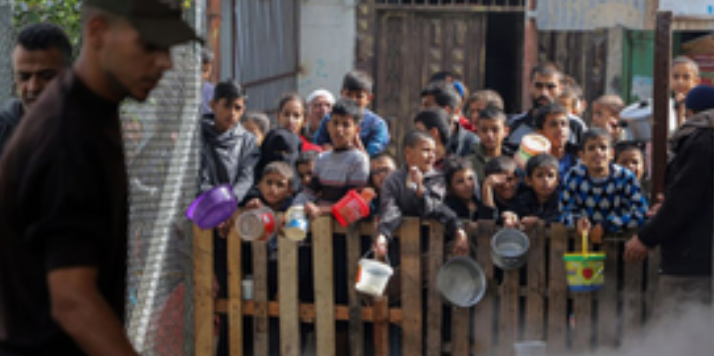America
Gaza remains at risk of famine, says UN

United Nations, Oct 18
The World Food Programme and the Food and Agriculture Organization said that the latest findings of the Integrated Phase Classification (IPC) report make clear that the risk of famine persists across the whole Gaza Strip.
"Given the recent surge in hostilities, there are growing concerns that this worst-case scenario may materialise," Stephane Dujarric, spokesperson for the UN Secretary-General, said at a daily briefing on Thursday.
Between September and October 2024, the whole territory is classified in IPC Phase 4 - Emergency. About 1.84 million people across the Gaza Strip are experiencing high levels of acute food insecurity, classified in IPC Phase 3 - Crisis - or above, including nearly 133,000 people facing catastrophic food insecurity, which is IPC Phase 5.
Acute malnutrition is 10 times higher than before the escalation of the hostilities, said Dujarric.
The report said that nearly the entire population in Gaza has been displaced multiple times, risking injuries or death from shelling and aerial bombardments, while many vulnerable groups are unable to relocate or find safe shelter, Xinhua news agency reported.
"The secretary-general said that he is alarmed by today's IPC report findings that high displacement and restrictions on humanitarian aid flows mean that the people of Gaza are facing catastrophic levels of hunger," Dujarric said.
"One year into the conflict, famine looms. This is intolerable," he quoted Guterres as saying.
Dujarric added that the UN chief urged the immediate reopening of crossing points, removal of bureaucratic impediments, and restoration of law and order so that UN agencies can deliver lifesaving humanitarian assistance.
Meanwhile, the UN Office for the Coordination of Humanitarian Affairs (OCHA) warned that ongoing Israeli military operations in Gaza are putting tens of thousands of civilians in grave danger.
The office said that intense hostilities, evacuation orders and loss of access to numerous water, sanitation and hygiene facilities in Gaza have rendered a number of systems for water production and wastewater collection inoperable.
In Gaza, the United Nations and humanitarian partners working to support water, sanitation and hygiene services are preparing for winter and taking urgent steps to mitigate the risk of flooding, OCHA said.
The World Health Organization reported that the second round of the polio vaccination campaign in central Gaza concluded on Wednesday, with more than 181,000 children receiving the vaccine and over 148,000 children getting vitamin A supplements, the office said, adding that the second round of the polio vaccination campaign is expected to start in Gaza on Friday.



































